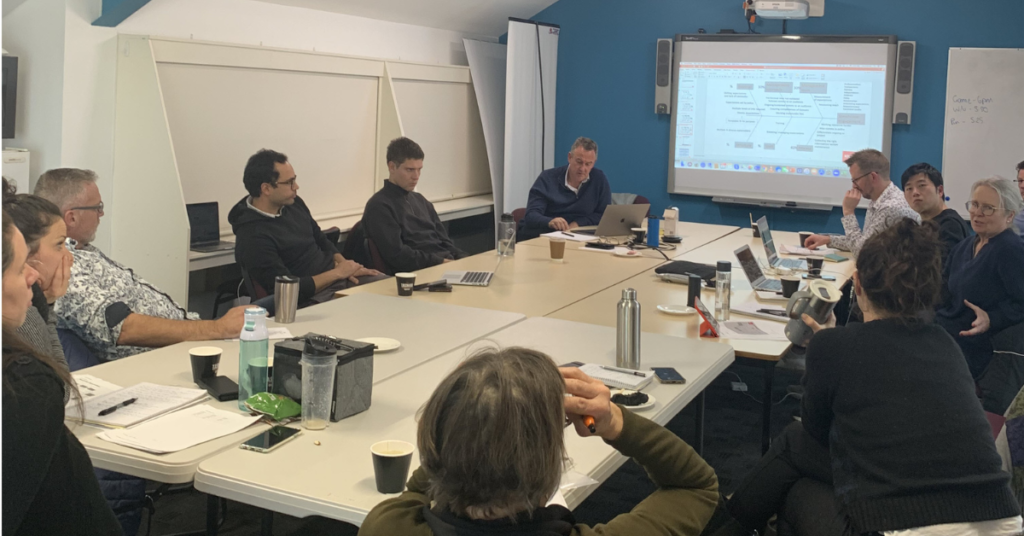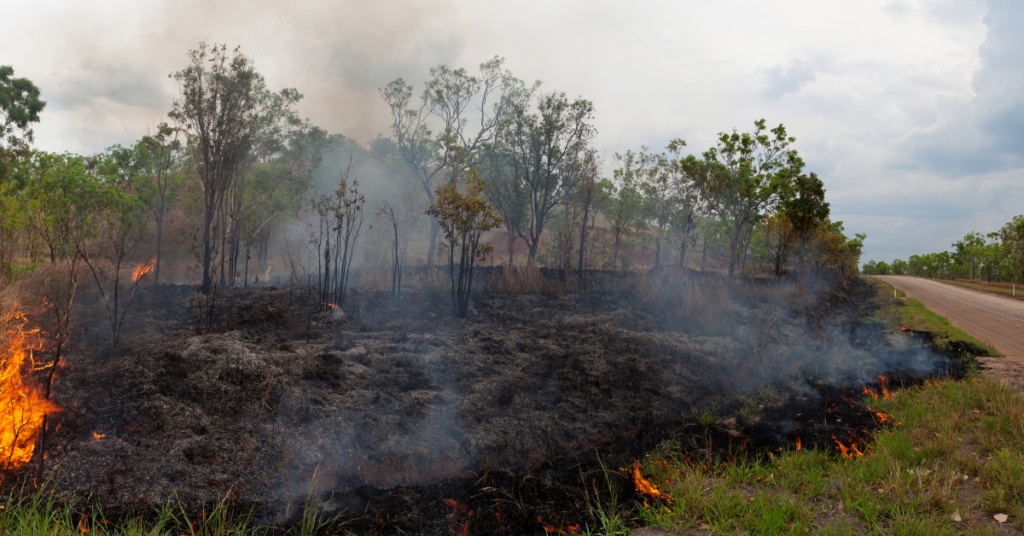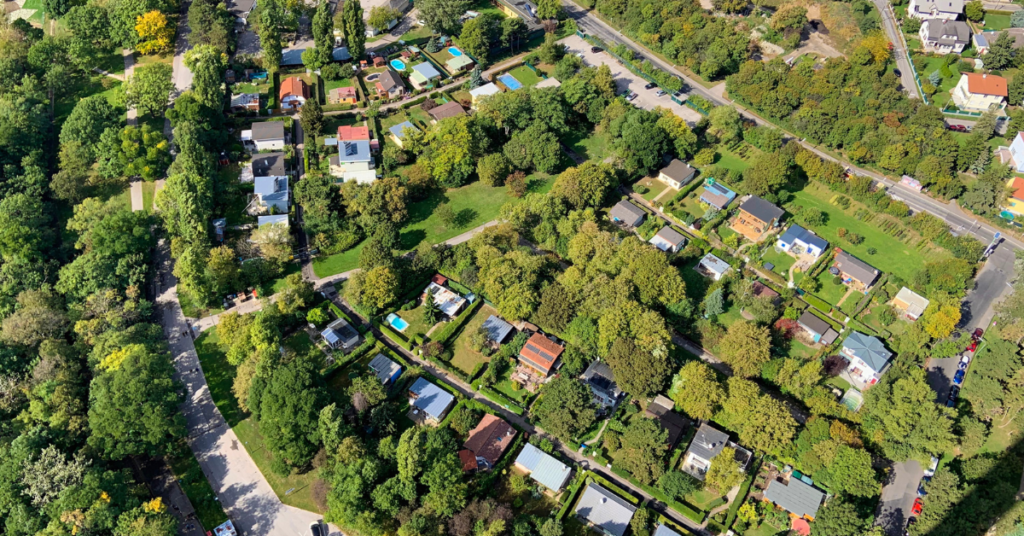Working provides innumerable benefits for people, from enabling financial security and freedom, to forming personal and social identities. Vocational training, guidance and industry standards play a large role in improving the accessibility of work for individuals. That’s why workforce development is such a crucial service in our society. Workforce development involves a range of activities, policies and programs that work to create and sustain viable labour forces to support a community’s economic development.
In celebration of their recent certification, we sat down with new B Corp Artibus Innovation, a workforce development consultancy, to learn more about how they’re guiding individuals and companies to be robust and resilient workers, and how they’re benefitting Australia in a variety of important ways.

Image Source: Canva
Tell us a bit about what your B Corp does.
Artibus Innovation is a workforce development consultancy focused on future-proofing Australia’s workforce. We do this by working across different levels of government and in partnership with industries to ensure three things:
- That national skills priorities are met
- That the skills solutions meet the needs of businesses across Australia
- And that these skills solutions deliver triple bottom line outcomes.
Our mission is to develop standards that reflect our clients’ requirements and which support objective skill and knowledge development that enhances the performance of people and industries. We work with the Australian construction and property industries with organisations ranging from building surveying, demolition and swimming pool building to real estate, fire protection and waste management. We prepare documents such as skills forecasts and proposed schedules of work, assist with developing and reviewing training packages, provide secretariat services and travel and accommodation support. We ensure that the construction and property industries’ qualifications and competency standards are up-to-date, future-focused and aligned with industry needs.

Image source: Artibus Innovation
Why did you want to certify as a B Corp?
Our mantra is ‘doing good for business is good for business’.
With this in mind, we set out to formalise our business commitment of contributing to social, economic and environmental positive impact. We looked into the B Corp certification process, and immediately saw the alignment between the B Corp certification and our business ethos. So, we decided to embark on the certification journey, understanding that this process would generate and require a range of positive structural business changes that would affect our staff and the wider community. Becoming a B Corp effectively cemented our business’ social and environmental commitments, and it ensures that we are publicly accountable to ourselves and the B Corp community.
What makes your B Corp unique as a business? Tell us some of the areas where you have the biggest impact, or some of the little changes you’ve made to make a difference.
Our business was founded in 2016 as one of only six Skills Service Organisations (SSOs) in Australia. SSOs are appointed by the Commonwealth Government to service the skills needs of industry. As a result, this provided us with immediate national reach that has allowed us to engage with, and learn from, a broad range of stakeholders with different areas of expertise. This key feature of our work has been pivotal in allowing us to satisfy our core responsibility to develop national skills and training standards, solutions and products that lead to attaining and retaining jobs and employment.
Knowing that our work contributes not only to the economy but also positively intersects with and impacts the lives of people living across Australia makes the work meaningful.
One project we are currently working on is the Bushfire Protection Assessment. The catastrophic impact of the 2019 to 2020 bushfires in Australia brought to the nation’s attention that the risk of bushfires is spreading from rural areas into towns and built-up areas. In response, governments at the local, state and federal levels are introducing regulatory frameworks for planning and construction in bushfire prone areas to protect people and property and to improve bushfire resilience.

Image Source: Canva
This is where we come in — the new regulatory imperatives for bushfire protection highlighted the need for national skills standards to support a range of job roles relating to the improvement of bushfire resilient development. Through public consultations, feedback sessions, various vocational training proposals, and liaising with numerous stakeholders and experts, we are on track to submitting the training components for this project to the Commonwealth Government in early September this year.
With the incredible work your doing, what business practice do you want to see become the norm?
A key topic of conversation amongst our staff is sustainability. We’re committed to sustainable development principles and we seek opportunities to enact these both within vocational training and education and our own business practices.
Over the last two years, we have made a concerted and conscious effort to minimise our carbon footprint and contribute to climate restoration projects.
As a business, we feel that by minimising work travel and capitalising on available digital alternatives, carbon footprints across the board can (and do) decrease.
It is a simple step in the right direction and one that we would like to see become a normative practice moving forward.
Some steps we have taken ourselves include putting business policies in place to:
- Minimise our carbon footprint
- Effectively manage our office waste
- Contribute to carbon offsetting
- Publicly disclosing our environmental impact to hold us accountable and make tangible improvements
More recently, we have also been exploring the applicability of the UN’s Sustainable Development Goals in the industries we work in. We found that the built environment accounts for 22 per cent of the world’s sustainability problems. We know that sustainable development is a wicked problem — one that cannot be approached in isolation, but that requires society, industry and governments to work together. We have been co-designing workshops with peak industry bodies from the property sector and have already discovered that there is an appetite for this discussion and that education has a huge part to play in its uptake.

Image Source: Canva
Was there a B Corp that inspired you to certify, or one that you look to for inspiration?
Although we had a rough idea of the well-known B Corps part of the community, we understood early on that each business is different and has different resources, needs and aspirations.
Our approach was to stay focused on our business priorities whilst keeping an eye on the B Corp certification requirements. We made subtle or incremental adjustments to our policies and practices, whilst we balanced our business priorities.
Do you have any tips for aspiring B Corps about the certification process?
From a business perspective, we would advise any aspiring B Corp to budget a great deal of patience and see the certification process as a journey rather than a destination. Certification is definitely not an overnight ‘tick the box’ process: it requires effort, time and dedication to satisfy the requirements and see the process through.
Congratulations to Artibus Innovation for certifying as a B Corp. If you’d like to keep up with what they’re doing, or get in touch, head over to their website: artibus.com.au

